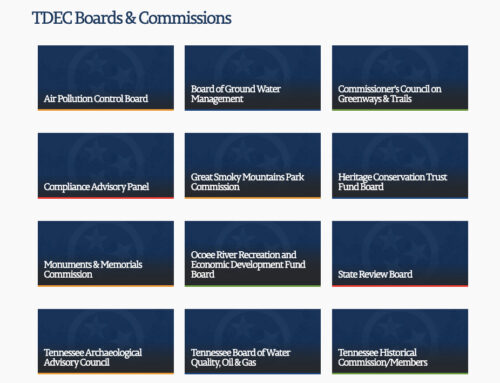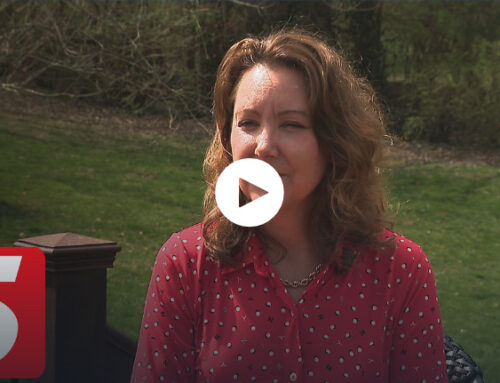With the legislative session under way, the Tennessee Coalition for Open Government is tracking proposed bills that could reduce government transparency, as well as some that could make government more open.
Lawmakers have until Feb. 5 to file bills, so the list could grow.
Two bills would add broad new exceptions to the public records law.
One, (S.B. 2254) by state Sen. Becky Duncan Massey, R-Knoxville, would make confidential the names, addresses and telephone numbers of sexual assault victims.
The bill as introduced, goes further with this blanket language: “No portion of any report, paper, picture, photograph, video, court file, or other document in the custody or possession of any public officer or employee which identifies an alleged victim of a sexual offense shall be made available for public inspection or copying.”
Other states have adopted provisions for keeping the identity of sexual assault victims confidential. But some do this by giving the option to the victim themselves. Others, like Colorado, require the victim’s name and other identifying information about the victim to be deleted from the criminal justice record before being released as a public record.
The proposed Tennessee bill appears to sweep up much more than the name of the victim by making entire documents about sexual assault crimes hidden from public view. This could shut off legitimate independent news reporting about sexual assaults, including watchdog reporting on how law enforcement deals with the crimes, as well as stymie efforts of citizens and groups who seek information in their efforts to combat sexual assault crimes.
Could the unintended consequence be that in trying to protect the victim, this overly broad act makes sexual assault crimes invisible to the public?
Another legislative proposal seeks to close criminal records held by the alcoholic beverage commission.
The bills as introduced, sponsored by state Sen. Ken Yager, R-Harriman, and state Sen. Bill Sanderson, R-Kenton, would add to the exemptions in Tenn. Code Ann. 10-7-504 “all criminal investigative files and records of the Tennessee alcoholic beverage commission” as well as any financial or proprietary information received by the commission.
As sort of an underscore, the bills (S.B. 2263/H.B. 2136) add the alcoholic beverage commission to the three other narrow categories (adoptions, vital records and TBI) exempt from the 70-year rule, which provides for confidential records to become public after 70 years.
Other open records bills govern the collection and release of student and teacher data.
The “Data Accessibility, Transparency and Accountability Act” introduced by state Sen. Dolores Gresham, R-Somerville, and state Rep. Vance Dennis, R-Savannah, would set out what information could be collected on students and teachers, as well as set up a system for making that information public in aggregate form and without identification of specific students.
Another bill introduced by state Sen. Ferrell Haile, R-Gallatin, deals with the same topic.
One legislative proposal, by state Sen. Lowe Finney, D-Jackson, and state Rep. Craig Fitzhugh, D-Ripley, seeks more transparency in economic development FastTrack grants and loans by requiring a report from recipients annually that includes, among other items “A summary of the number of jobs required by the terms of the grant or loan contract, and the number of jobs created or lost as of December 31 of the previous year, broken down by full‐time, part‐time, and temporary positions, and by wage groups;…”
The companion bills (S.B. 1978/H.B. 1873) also have a provision to make that information transparent to the public by requiring the Department of Community and Economic Development to “publish all reports filed pursuant to this section on its web site no later than April 1 of each year. The department shall provide all of the data from the reports both in a searchable database and as a spreadsheet that can be downloaded in its entirety; provided, when a new report is posted, the department shall leave earlier versions of the data on the web site.”
Other bills under watch include:
* S.B. 2073, introduced by Haile, which would make confidential information related to school safety plans, and exempt meetings involving school safety plans from the Open Meetings Act.
* H.B. 1936, introduced by state Rep. Gary Odom, D-Nashville, that provides for “authorized disclosure to public of information concerning complaints made against assisted-care living facilities and reports of investigations, inspections and surveys involving such facilities.”
* S.B. 2344, introduced by state Sen. Bill Ketron, R-Murfreesboro, that would give a local legislative body authority to decide what publications could be defined as a newspaper to satisfy requirements of public notice laws, moving the decision of where to put public notices into the political realm.
* S.B. 1889 and H.B. 1773, introduced by state Sen. Stacey Campfield, R-Knoxville, and state Rep. Mike Sparks, R-Smyrna, would allow government entities to fulfill the law’s requirements of adequate public notice of a meeting or legal notice by having it read on a radio broadcast and put on the radio station websites (instead of being placed newspapers).
–By Deborah Fisher, executive director of Tennessee Coalition for Open Government. She can be reached at [email protected] or (615) 602-4080.




